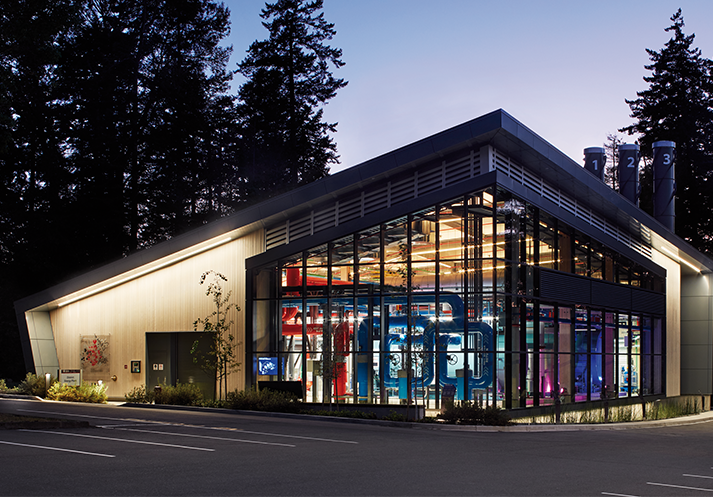
The University of Victoria has unveiled a new district energy plant (DEP) to service the heating needs of its main campus in Victoria, British Columbia. This leading-edge plant was commissioned to replace three separate natural gas-fired boilers on campus, one of which dated back to the 1960s; the boilers had either reached the end of their operational lives or were not functioning properly.
The new plant pumps heat through a network of hot-water pipes to 32 buildings on campus. When it’s operating at full capacity, the plant can heat three million square feet of building space – the equivalent of 2,000 single-family homes!
The DEP enables the University to meet its current and future heating requirements in a cost-effective and environmentally responsible manner. This is particularly important for an institution that prioritizes sustainability for everything from campus operations to transportation, waste, and even student dining on campus.
This highly sustainable project is targeting LEED® Gold certification, which further underscores the University’s commitment to environmentally responsible facilities. The building itself boasts sustainable and passive energy strategies, including high-efficiency glazing, natural ventilation, and a rainwater collection system that treats all the stormwater from the roof of the building, thereby avoiding any additional load on the stormwater system or sewers. The plant uses the residual heat from the boilers to heat the building itself; the rest of the heat produced is exchanged with the DE network.
The new high-efficiency boilers in the DEP will help the university achieve a 10% reduction annually in the amount of energy required to heat facilities on campus. The new plant is expected to result in a in addition to a 6,500-tonne reduction in greenhouse gases (GHG) created by the university each year.
Proudly showcasing the plant’s sustainability, the university has also included extensive signage outside and inside the building to provide an overview of the plant’s operating capabilities. Two digital dashboards (one outside, one inside) offer real-time visual representations of plant operations, while pipes and equipment are colour-coded based on their functions.
The DEP is the third of four projects that DIALOG has worked on with the University of Victoria. The first was an update to the university’s campus plan, which was completed in 2016. The second was a biomass energy feasibility study undertaken in conjunction with FVB Energy, DIALOG’s partner on the DEP. DIALOG’s newest project with the University is the planning, design, and construction of a major engineering precinct expansion. This project started late in 2019, and is scheduled to be completed in 2023.